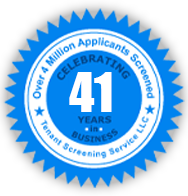How to Spot a Fake Diploma
July 10th, 2015 by Dodie
 In May of 2012, it was reported that Yahoo’s CEO at the time, was fired due to the discovery by an outside Yahoo investor party that his supposed Computer Science degree had been faked before he added this specific job requirement to his resume. Though the CEO’s deceit is one that is high-profile, this case is just one example among thousands of fraudulent activity involving faked diplomas and degrees. This is why you need to know how to spot a fake diploma. It would also help to conduct employee checks to ensure that the people you are hiring are exactly who they claim to be.
In May of 2012, it was reported that Yahoo’s CEO at the time, was fired due to the discovery by an outside Yahoo investor party that his supposed Computer Science degree had been faked before he added this specific job requirement to his resume. Though the CEO’s deceit is one that is high-profile, this case is just one example among thousands of fraudulent activity involving faked diplomas and degrees. This is why you need to know how to spot a fake diploma. It would also help to conduct employee checks to ensure that the people you are hiring are exactly who they claim to be.
Protecting An Investment
A business is an investment to those who set it up and to those who see the potential in it and buy shares in the business’ stock. In regard to the sudden discovery of Scott Thompson’s fake Computer Science degree, the people who made this outrageous claim were those who had personal interest in the way Yahoo was being operated. They had a legitimate reason to look into the background of Mr. Thompson, discover their findings and have him fired for embellishing his resume.
When a potential employee or house tenant sends in their resume or application to be looked over by a decision maker, sometimes the information therein is not entered into a background check or screening software program or given to a background check company the way it should be every time.
If these simple and convenient resources are used as often as they should be, by those doing the hiring or approving, there would ultimately be less information fraud. If this were the case, those who had invested much time and money into a business would not lose so much money to that of fraud investigations, firings and training for those that they have to hire in place of the person that had been fired.
Two Roads to Getting a Fake Diploma
Getting a fake high school diploma or university degree can be quite expensive and is not currently illegal in the United States. This questionable option is certainly less expensive than going to an accredited school for two to six years, depending on what kind of degree you are buying.
There are numerous websites on the Internet that claim that they sell degrees and diplomas strictly for novelty reasons while also boasting that their particular degrees and diplomas look and feel just like the truly earned, academic documents that they try to mimic. These companies produce counterfeit copies of real high school and university or college diplomas or degrees.
Another option for those who wish to have the diploma or degree, without having to pay the extremely high tuition rates or give up their time to study, is to get a document from one of the many diploma mills that flood the Internet. These companies also require a one-time transaction fee and will require little to no study in order to get it.
These diploma mills are not accredited institutions and most are located in foreign countries where English is a second language. Because of this, spelling can be a good indicator that the document is a fraud.
Recognizing a Fake Diploma
There are several factors to look for when determining whether or not an academic document is real.
• printing marks on the paper
• paper quality is questionable
• “University” or “College” is printed at the wrong spot for the institution’s name
• no watermark when held under bright light
• document seal is flat and not raised the way official seals are
• Chancellor, Dean and Secretary signatures are not handwritten in ink
• degree abbreviations such as B.A. and PH. D. are used
• font and ink color inconsistency is evident
• spelling mistakes throughout the document (glaring errors such as “batchelor” and/or “sutdent” are a dead giveaway it’s fake; unfortunately, not all fakes have misspellings, so be careful)
If there is any question, refer the document to professionals. It would also be a good idea to talk to background check companies in order to get an idea what their services can do for your business. Background Check Solutions is the country’s most reputable provider that can help you screen applicants.
Comments are closed.


